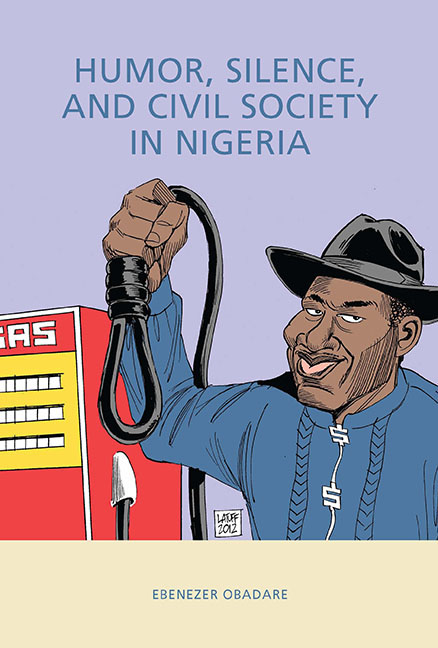Introduction: On the Terms of a Debate
Published online by Cambridge University Press: 15 February 2018
Summary
This book is intended as a critical meditation on the subject of civil society. It is not a description of contemporary civil society or the civic landscape in Nigeria. It is an attempt to think with the subject, that is, civil society. In doing so, I take inspiration from one of the clear arguments that, in my reading, a vast and otherwise chaotic literature consistently postulates. That central idea is of civil society as a welter of voluntary associations occupying the space between the state and the rest of society.
I do not disqualify this idea as much as track its genealogy and suggest its limitations, and my overriding aim in this book is to show that seeing civil society only in terms of voluntary civic associations sells the idea short, both historically and substantively. Accordingly, I propose to reunite the idea of civil society with the spirit and work of its most recent “founding fathers,” the Eastern European dissidents among whom the idea of civil society germinated in a context in which voluntary associations of any sort were, it seems important to remember, expressly outlawed. In enabling an encounter with the Eastern European dissidents, I lay claim to the ownership of a language whose roots are admittedly tangled up in European history (see, for instance, the account in Black 1984), but that, in its contemporary incarnation—both globally and in Africa—“has been cleansed of some of its more radical discursive history” (Helliker 2012, 35).
To this end, the two illustrative chapters in the book—on humor and silence, respectively—are most fruitfully approached in a heuristic spirit, meaning as examples tendered not with any hope of analytic finality but as a way of suggesting and opening up new discursive vistas. I hold up and analyze humor and silence respectively as two instances (others exist) of informal strategies of resistance outside rigid associational formats. I argue that incorporating such strategies within the rubric of civil society discourse helps to breathe new life into the term, in addition to reminding us of the different ways in which political subjectivity can be capacitated and enriching our understanding of the social landscape from which formal associations emerge.
Adopting this approach, by the same token, assumes a contrarian pose in regard to some of the recurrent tropes and debates in existing civil society discourses.
- Type
- Chapter
- Information
- Humor, Silence, and Civil Society in Nigeria , pp. 1 - 31Publisher: Boydell & BrewerPrint publication year: 2016

